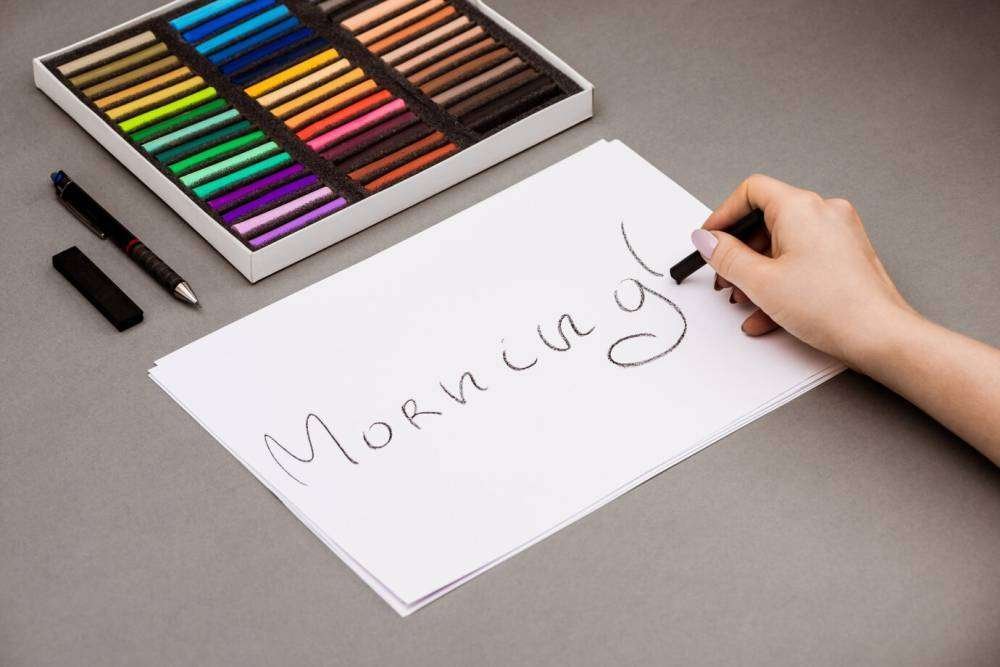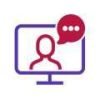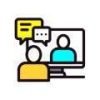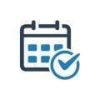GET 10% OFF ON FIRST ORDER USE CODE: WELCOME10 | Min. Cart Value Rs 499
GET 10% OFF ON FIRST ORDER USE CODE: WELCOME10 | Min. Cart Value Rs 499
How to Use Flashcards for Effective Learning?

Introduction
For many years, flashcards have been a standard study aid, and for good reason. They make it simple for pupils to recall and retain information while also being portable and easy to utilize. To make the most of flashcards’ usefulness and support you in reaching your academic objectives, we’ll examine the best techniques for using them in this blog post.
1) Choose the Right Content :

Identify the Key Concepts and Information :
Making excellent flashcards requires first determining the crucial ideas and facts. It entails segmenting the information into digestible chunks and concentrating on the most important details. By doing this, you may make flashcards that focus on the key concepts and improve how well you retain the information. To make sure you are learning the most pertinent material, you must be deliberate and strategic about what you include in your flashcards.
Keep it Simple and Bite-sized :
Keeping flashcards straightforward and bite-sized entails reducing difficult concepts down into manageable bits of knowledge. This keeps you from being overloaded with information and enables you to concentrate on one thought at a time. You can learn the information and rapidly retrieve it when necessary by keeping the information straightforward and bite-sized.
Focus on What You Don’t Know :
Prioritizing the material that you struggle with or are less familiar with involves focusing on what you don’t know. This enables you to strengthen your topic knowledge and focus on your areas of weakness. You can find areas that need more attention and increase your overall comprehension by concentrating on what you don’t know.
2) Create Your Own Flashcards :

Handwrite Your Cards :
It is advised to handwrite your flashcards because doing so activates parts of your brain that typing does not. It improves your ability to fully comprehend the information and helps you remember it. You can personalize the information and adapt it to your learning preferences by scribbling the flashcards.
Use Images and Diagrams :
Flashcards with pictures and diagrams can be a very effective tool for improving memory recall. Visual information is processed by our brains more quickly than words, which makes it simpler to recall. Your flashcards can be made to be more engaging and remembered by including pictures and diagrams.
Make it Colorful and Engaging :
Making your flashcards vibrant and interesting will improve learning and boost your enthusiasm to study. You can organize the information and make it more aesthetically appealing by using various fonts and colors. You may make learning more engaging and pleasurable by adding eye-catching visuals to your flashcards.
3) Optimize Your Learning Process :

Use Active Recall :
The act of actively recalling knowledge from memory without the help of notes or textbooks is known as active recall. Utilizing flashcards to practice active recall forces you to recall information from memory while reinforcing your comprehension of the subject. It has been demonstrated that this method works well for enhancing memory and retention.
Space Out Your Practice :
Instead of studying everything at once, spread out your practice by doing it at regular times over time. This improves long-term memory and enables your brain to comprehend the information more thoroughly. You can speed up your learning and increase your memory of the information by spreading out your practice with flashcards.
Mix Up Your Cards :
By mixing up your flashcards, you can avoid rote learning and strengthen your ability to apply the ideas in various situations. Additionally, it might help you spot knowledge gaps and solidify your comprehension of the subject. You can test yourself and learn the material more deeply by switching up your flashcard sets.
4) Test Yourself

Evaluate Your Progress :
A crucial part of using flashcards for efficient learning is assessing your progress. It entails keeping an eye on your progress and modifying your study plan as necessary. You may determine your strengths and weaknesses, gauge your progress, and modify your study strategy for better outcomes by reviewing your progress.
Reinforce What You’ve Learned :
Even after you have originally memorized the content, you must practice it regularly in order to retain what you have learned. This enhances your retention of the information by helping to cement it in your long-term memory. Flashcards are a great way to reinforce what you’ve already learned and help you apply the ideas more successfully.
Adjust Your Study Strategy :
Being adaptable and flexible in your approach can help you modify your study plan to suit your own learning demands. This could entail altering your study routine, updating the information on your flashcards, or adding fresh strategies to improve your learning process. You may maximize your learning process and get better results by changing your study plan.
Conclusion:
Flashcards are a useful tool for successful learning, to sum up. You can design your own unique flashcards and streamline your learning process to meet your academic objectives by adhering to the best practices described in this blog post. You may enhance your memory and recall with regular practice, which will help you feel confident and ready for any test or exam.
Free shipping
Free Returns
Secured Payments

SpartanKids are like one big family with a goal in mind to help make a smarter generation and optimize the experiences of students, teachers and families.
Our Products
Get Newsletter

Copyright 2022 © Spartan Kids. All rights reserved.
Design & Developed By : Spartan Branding | Disclaimer





